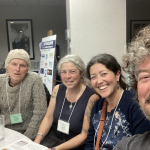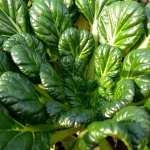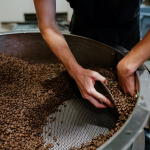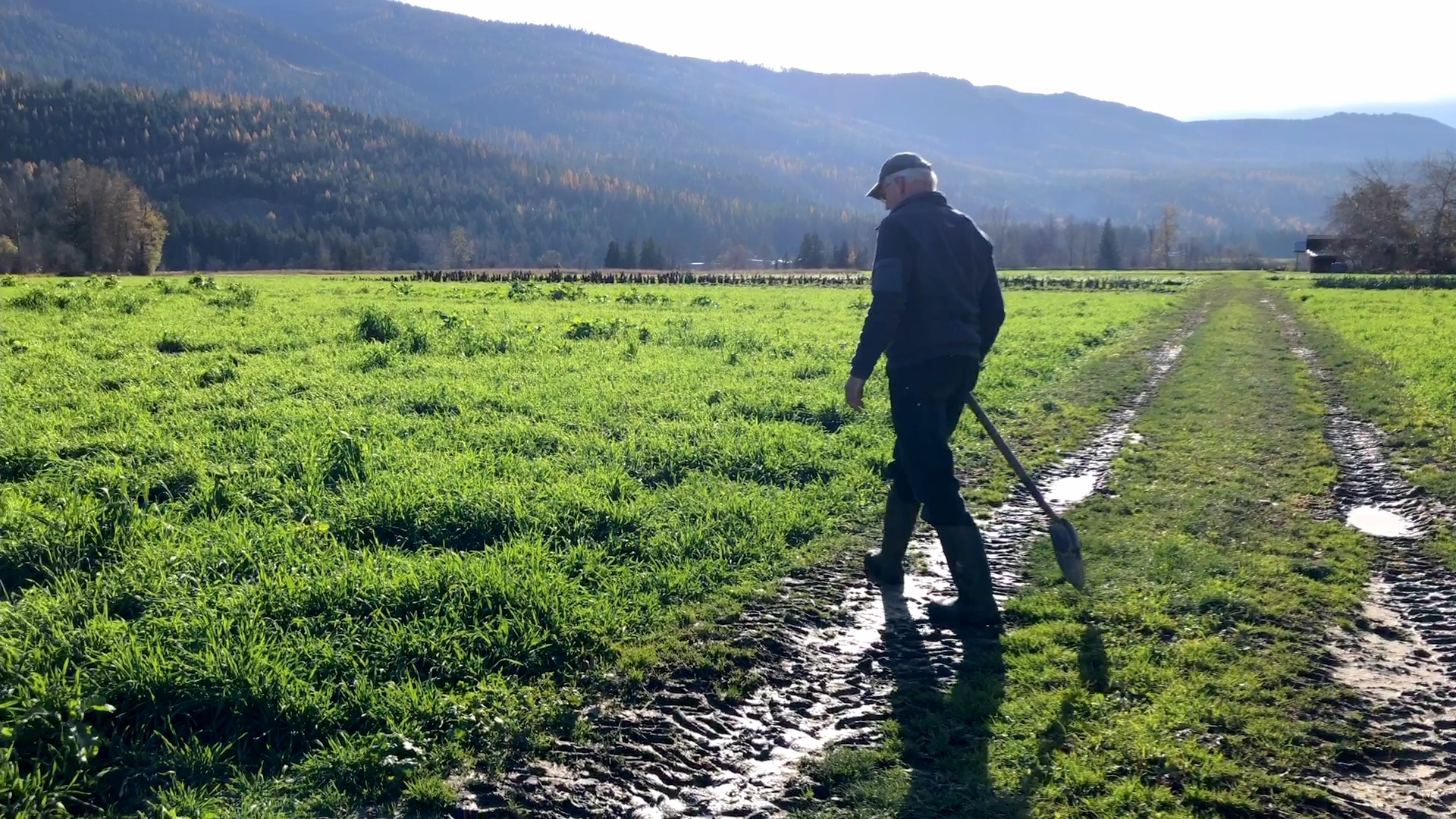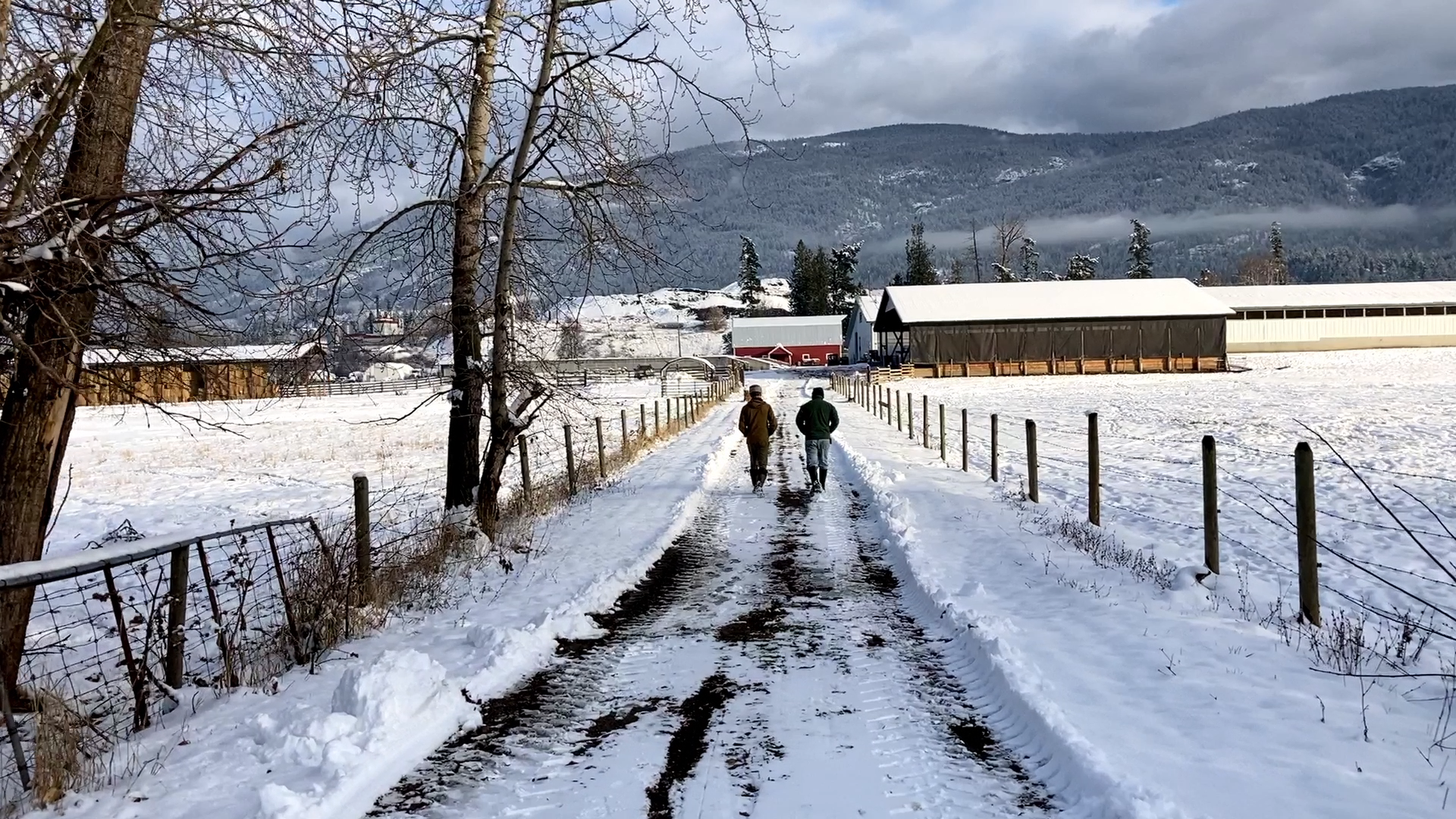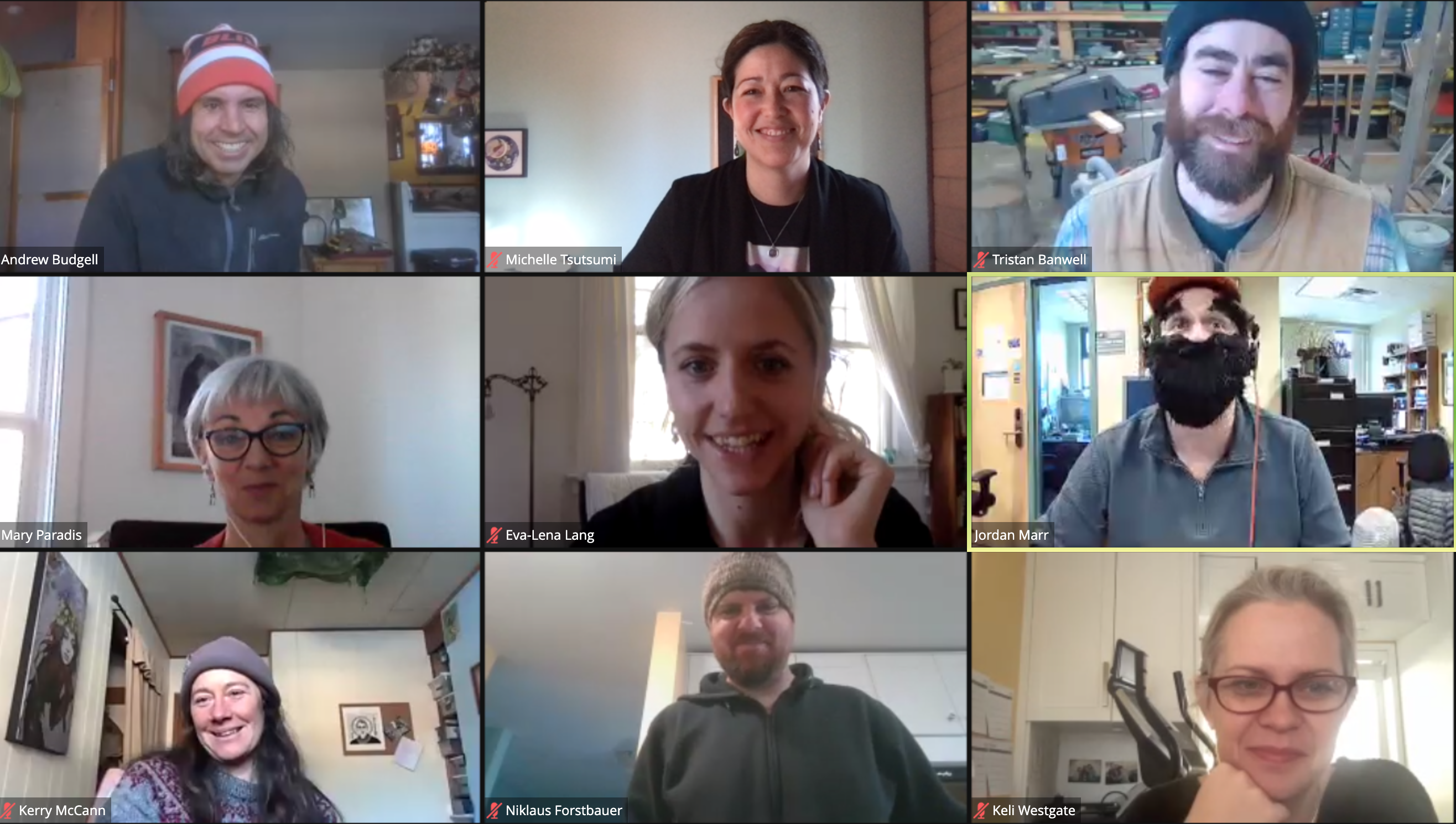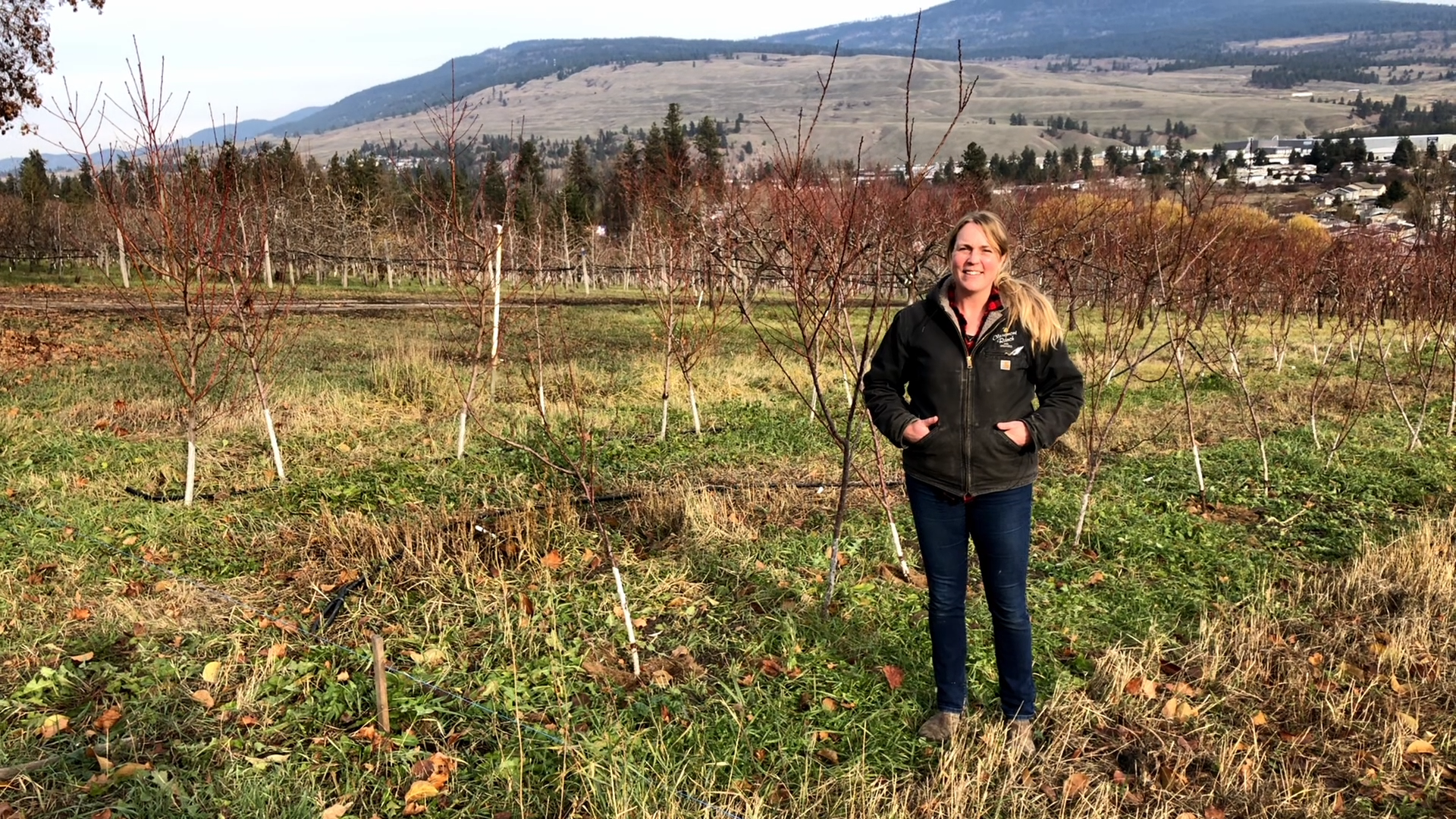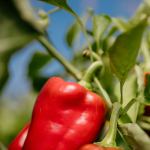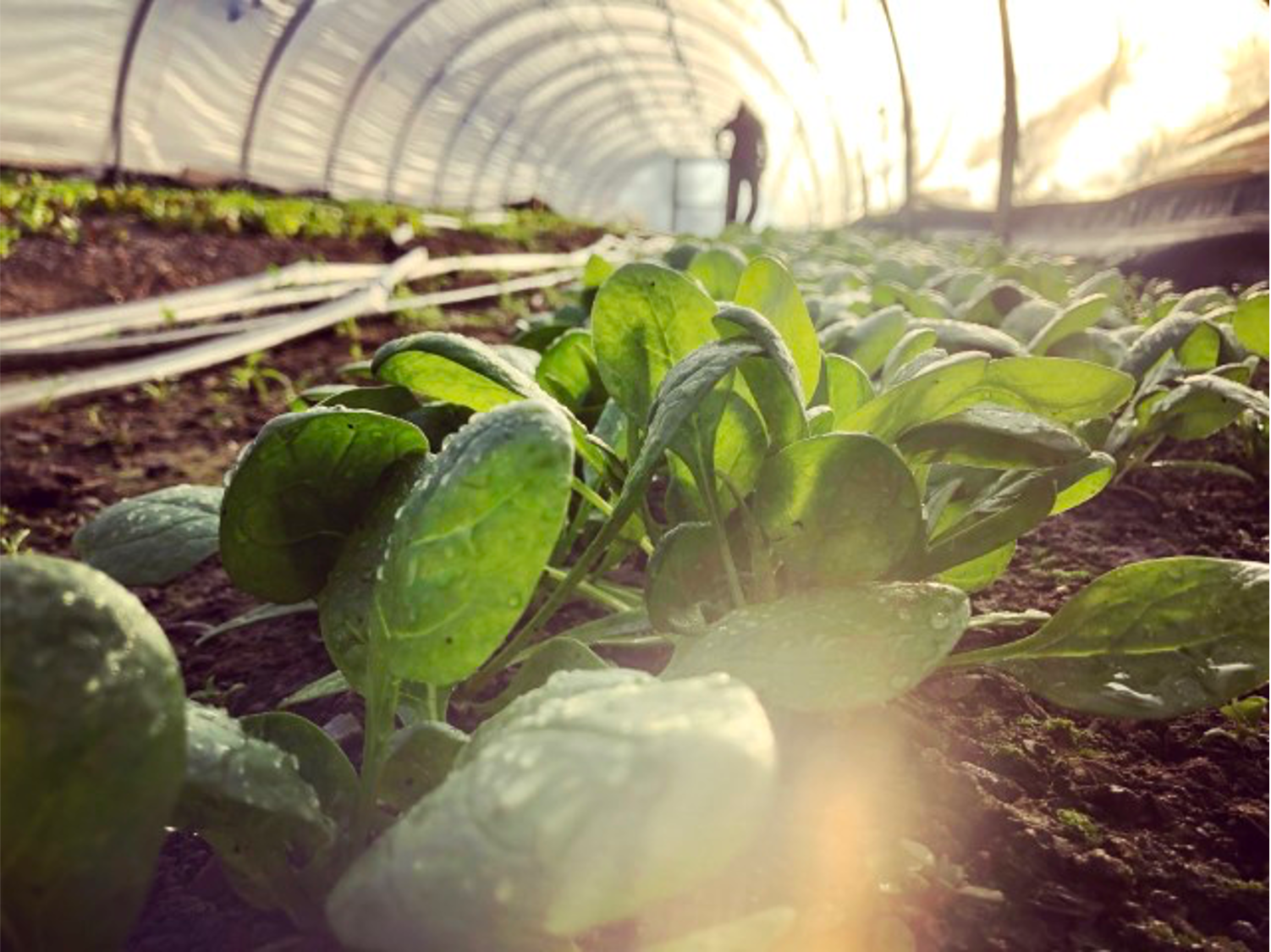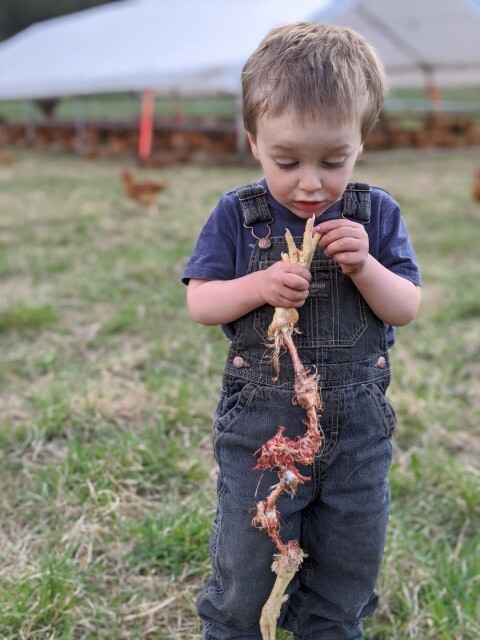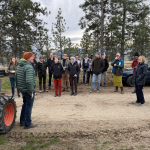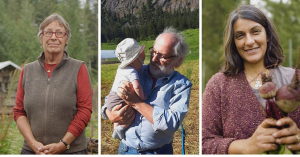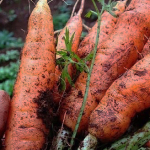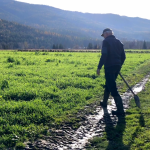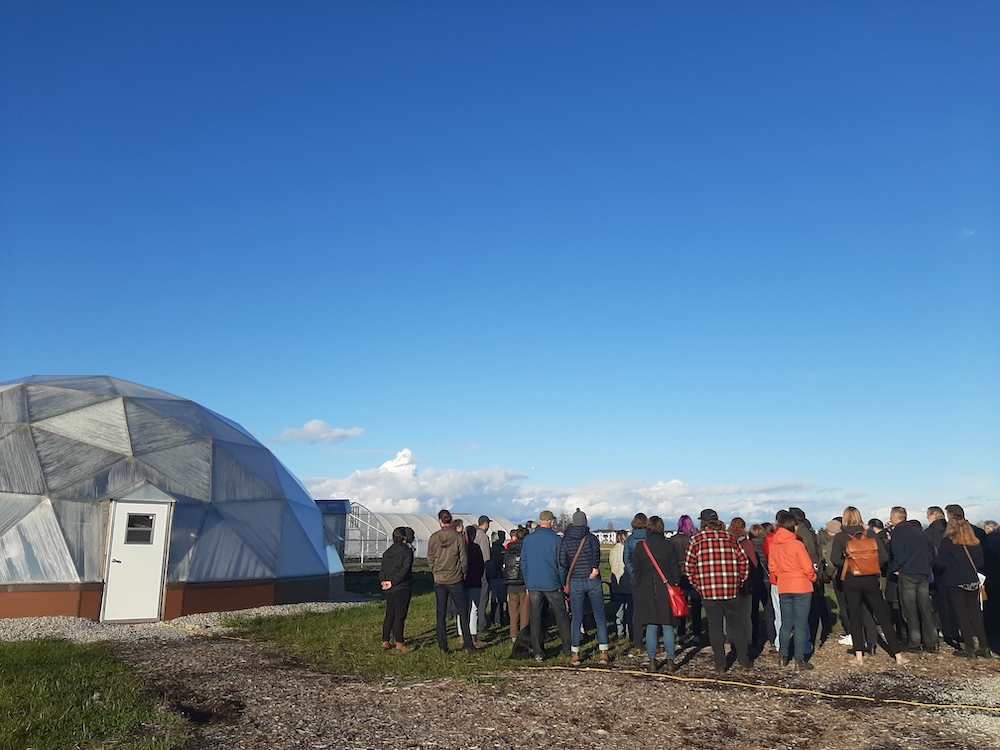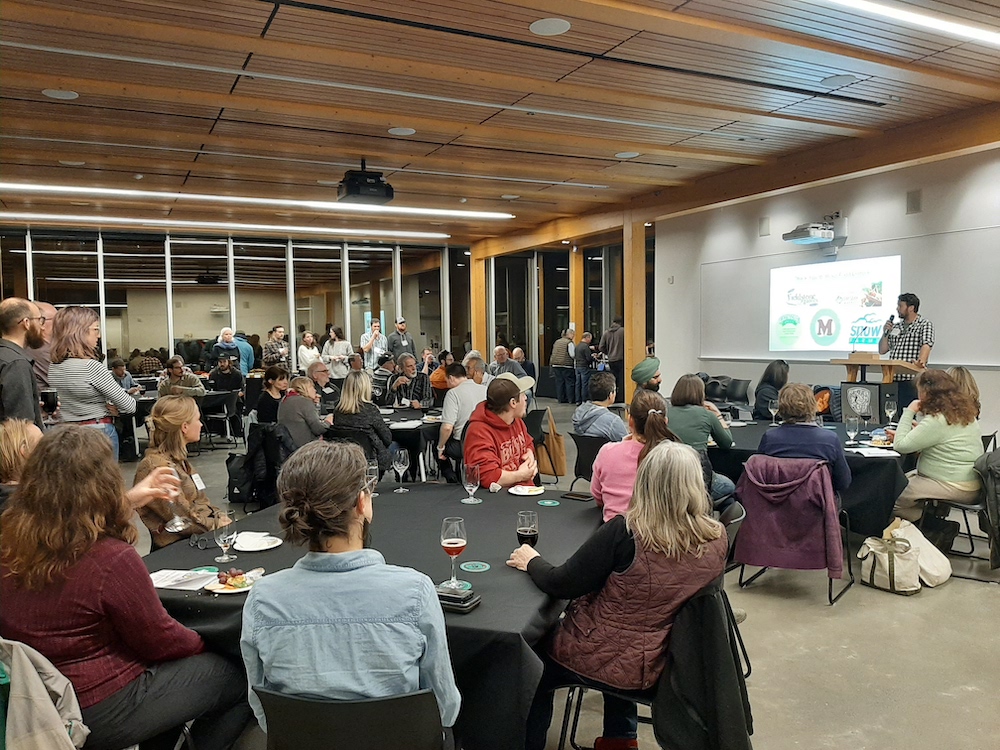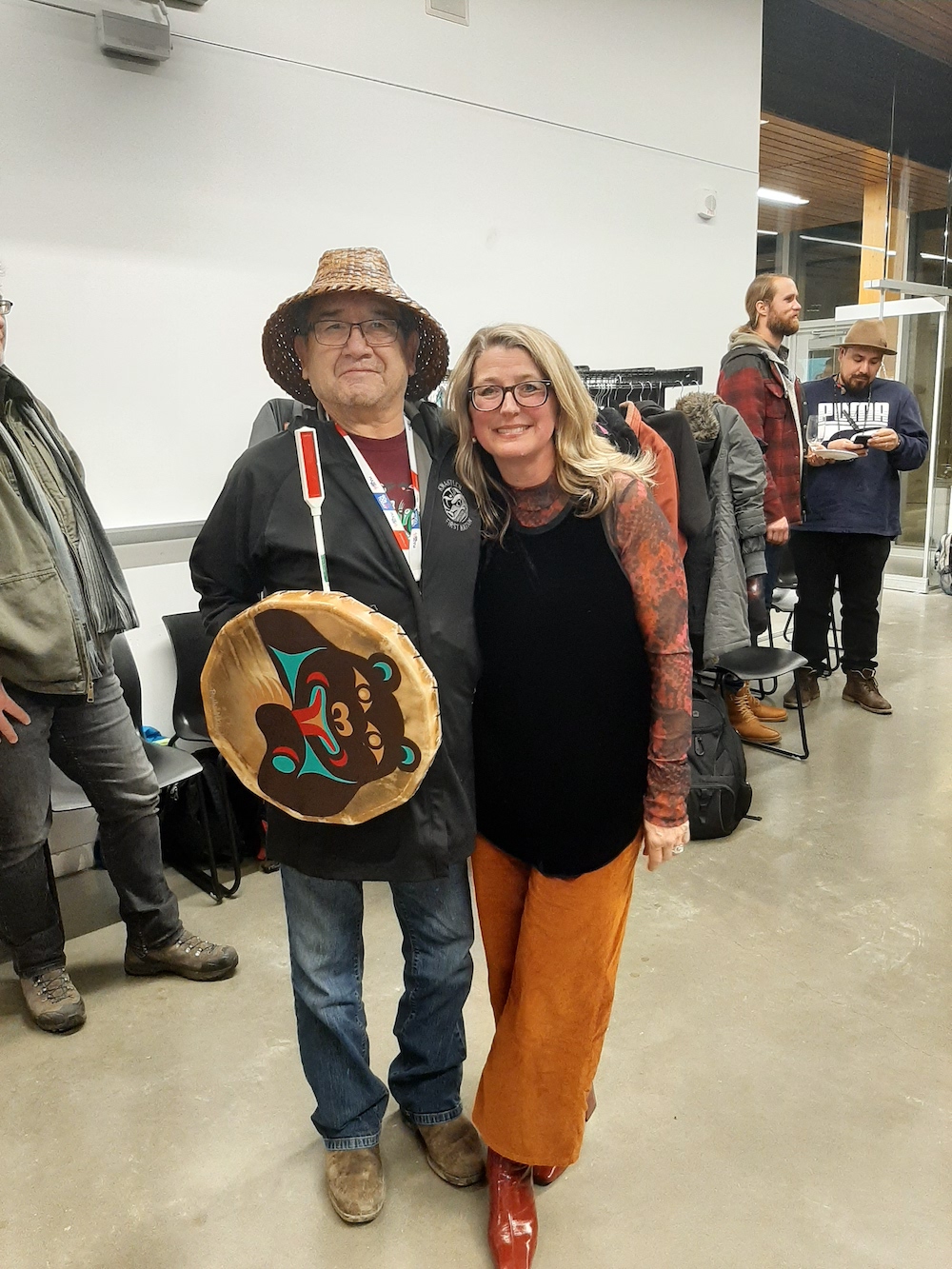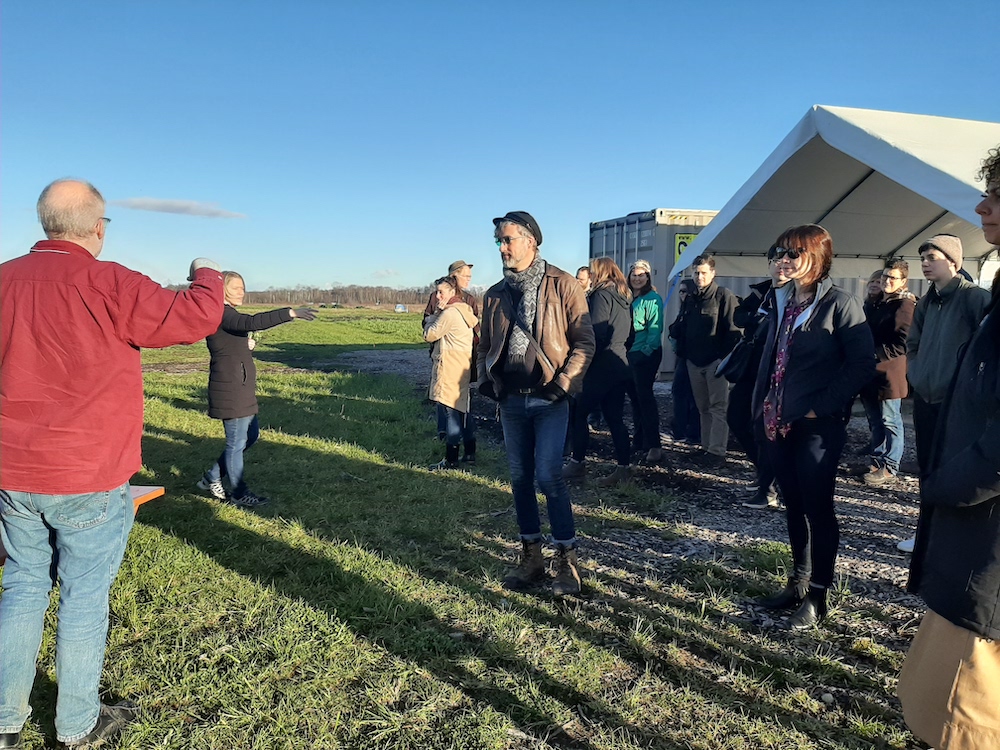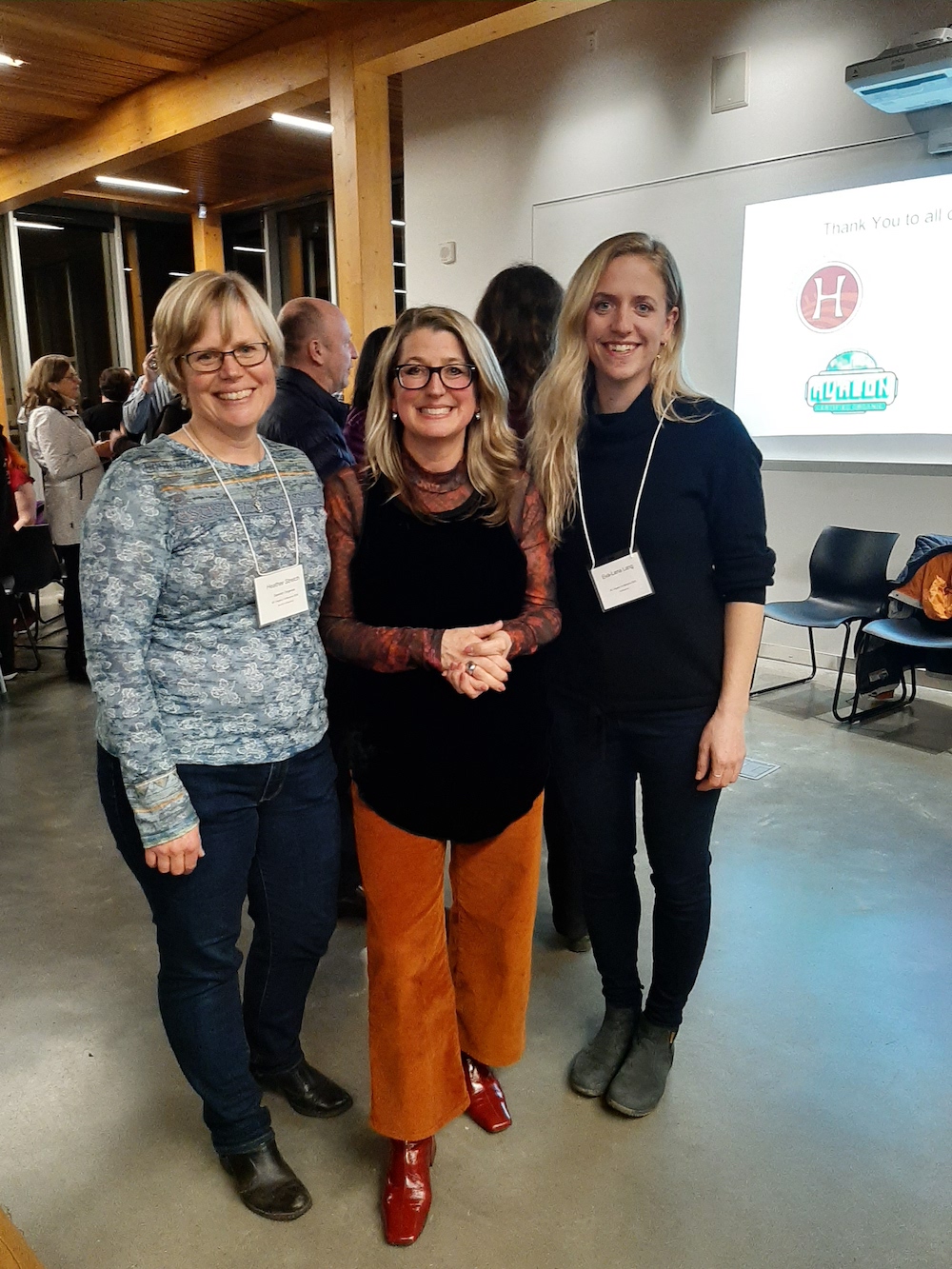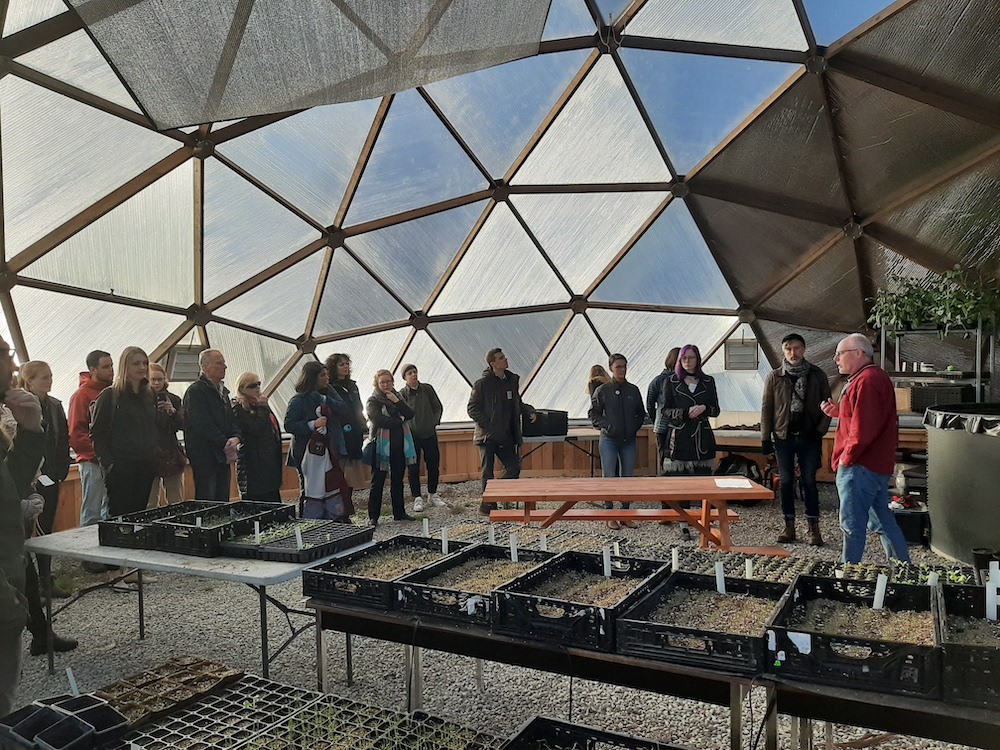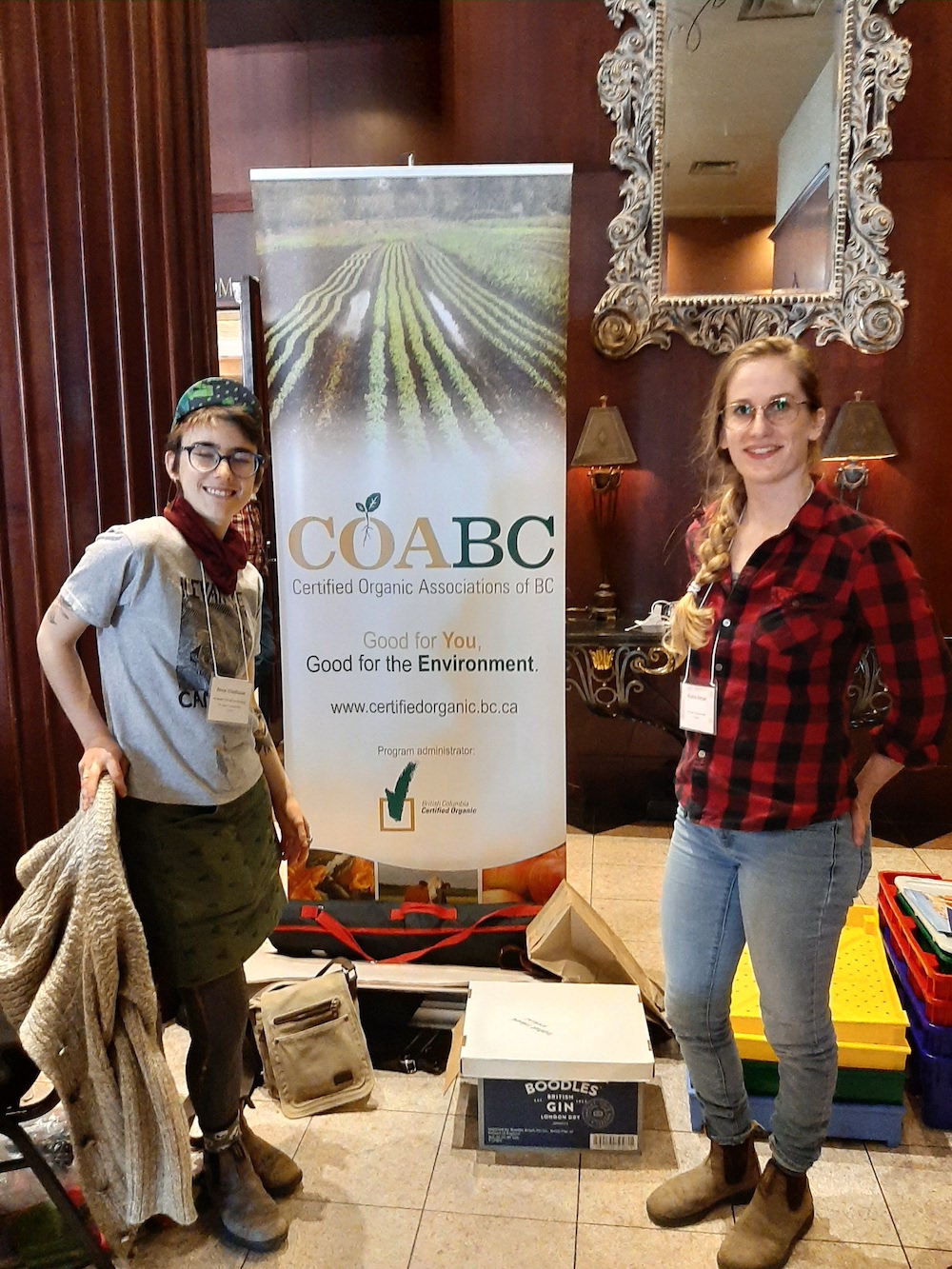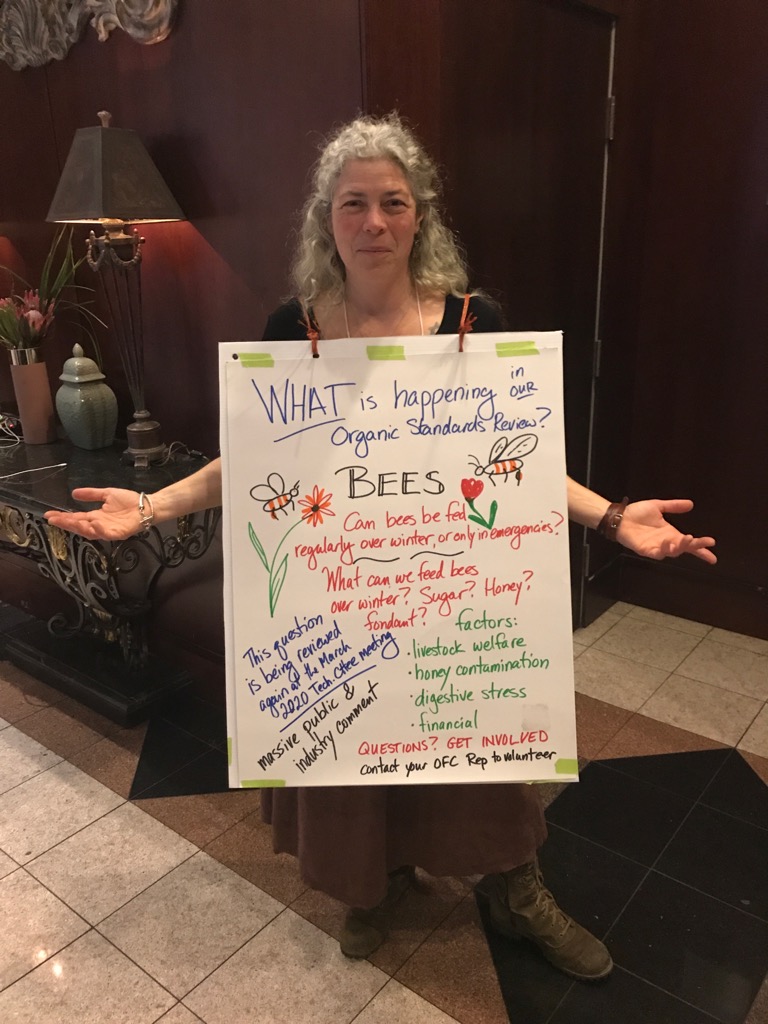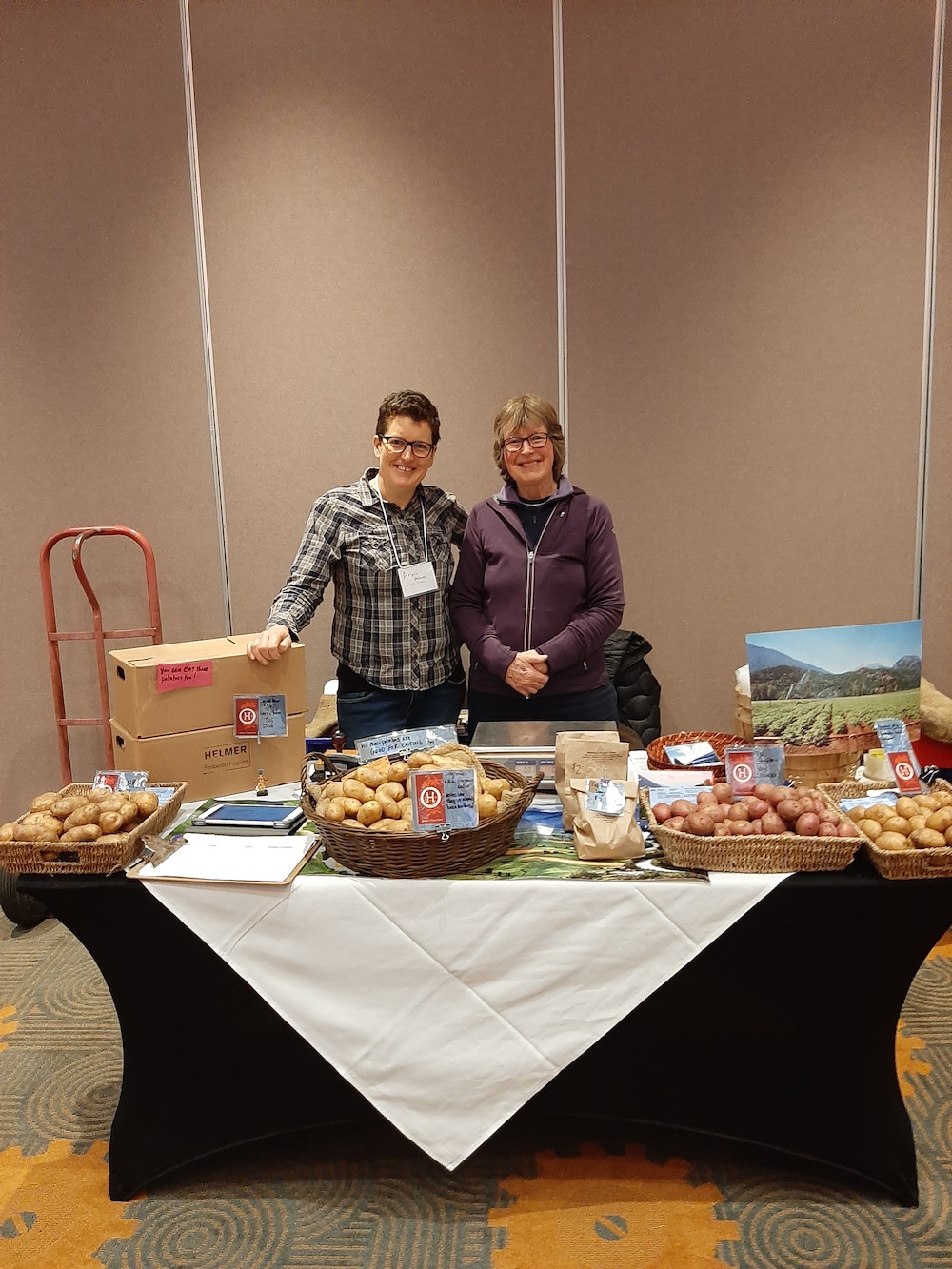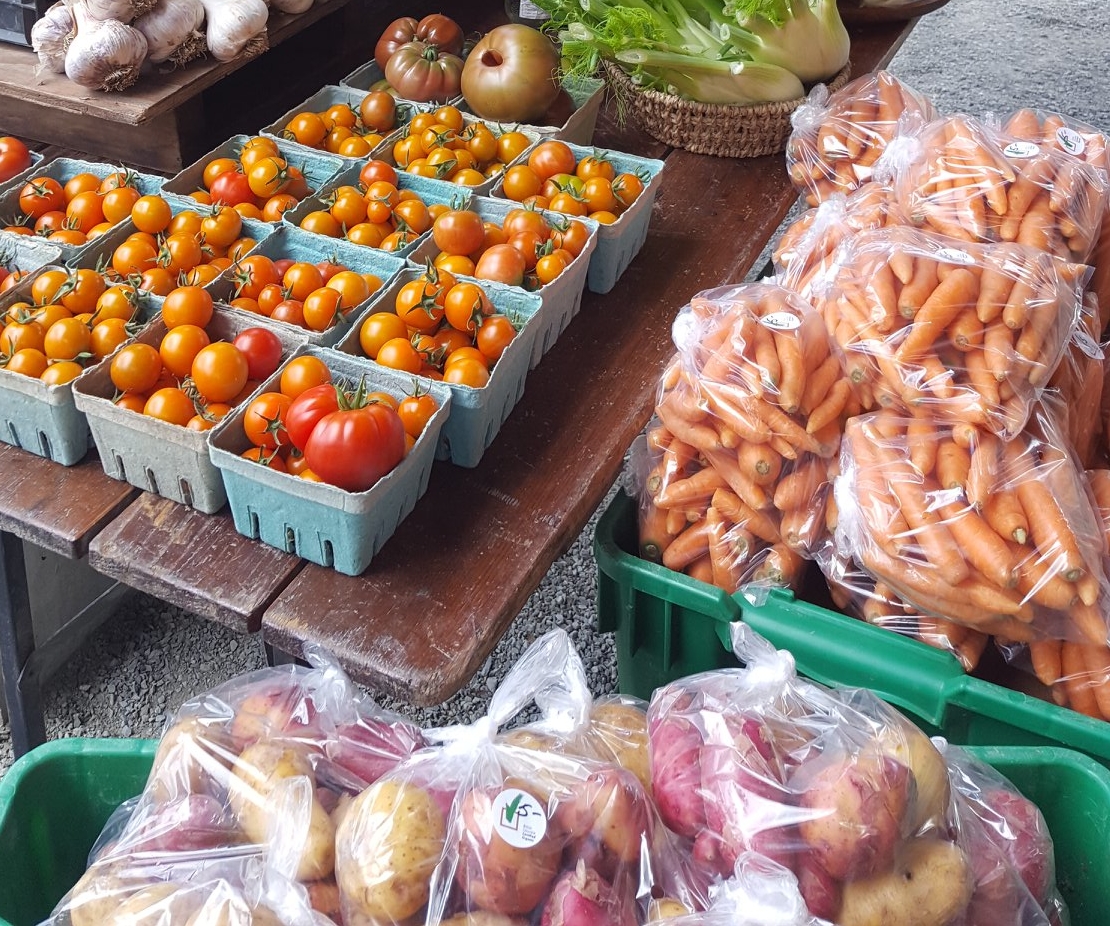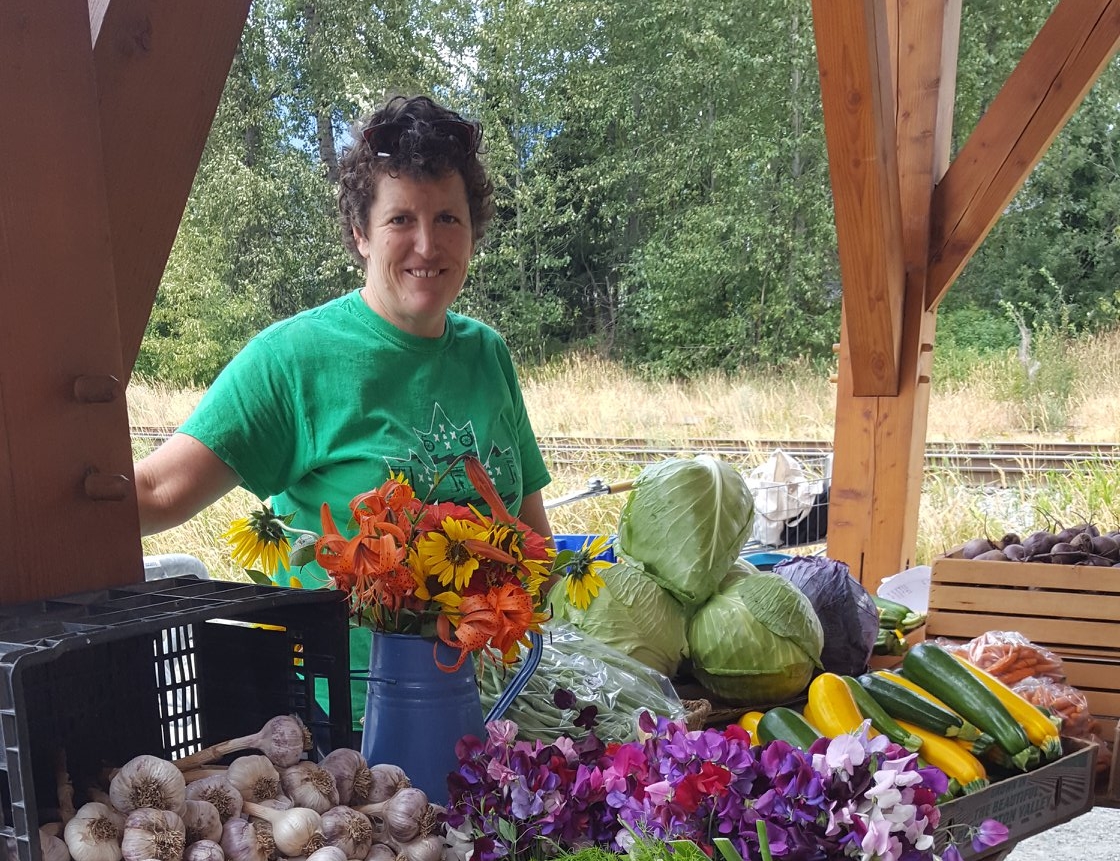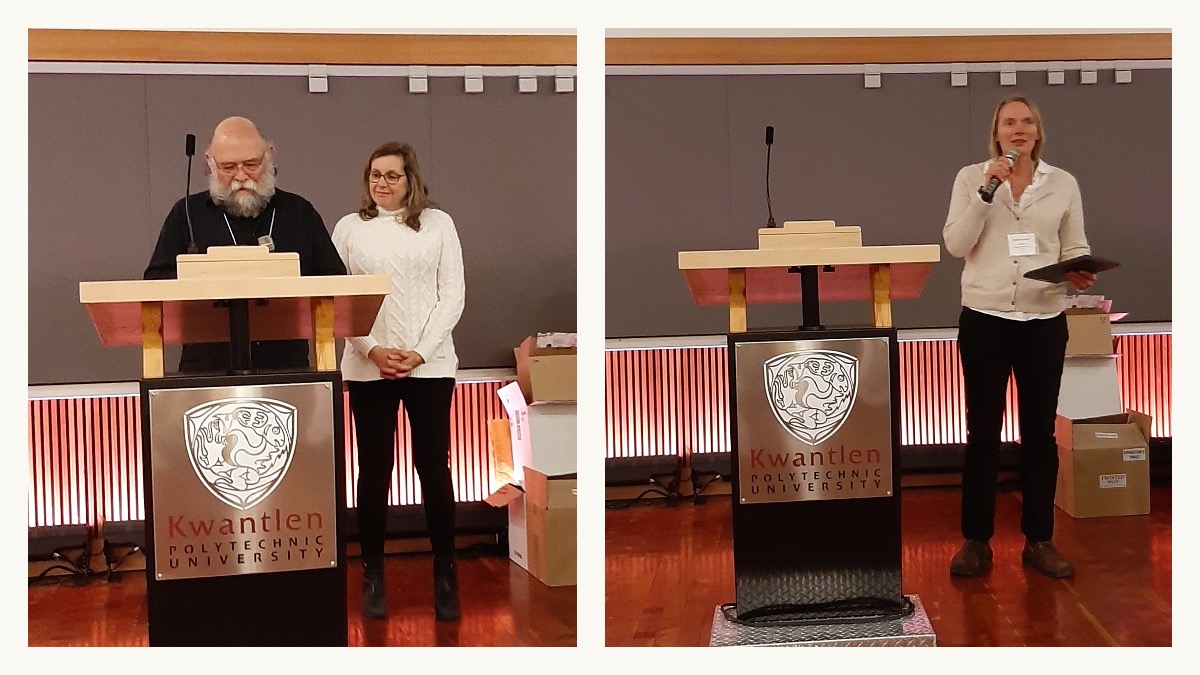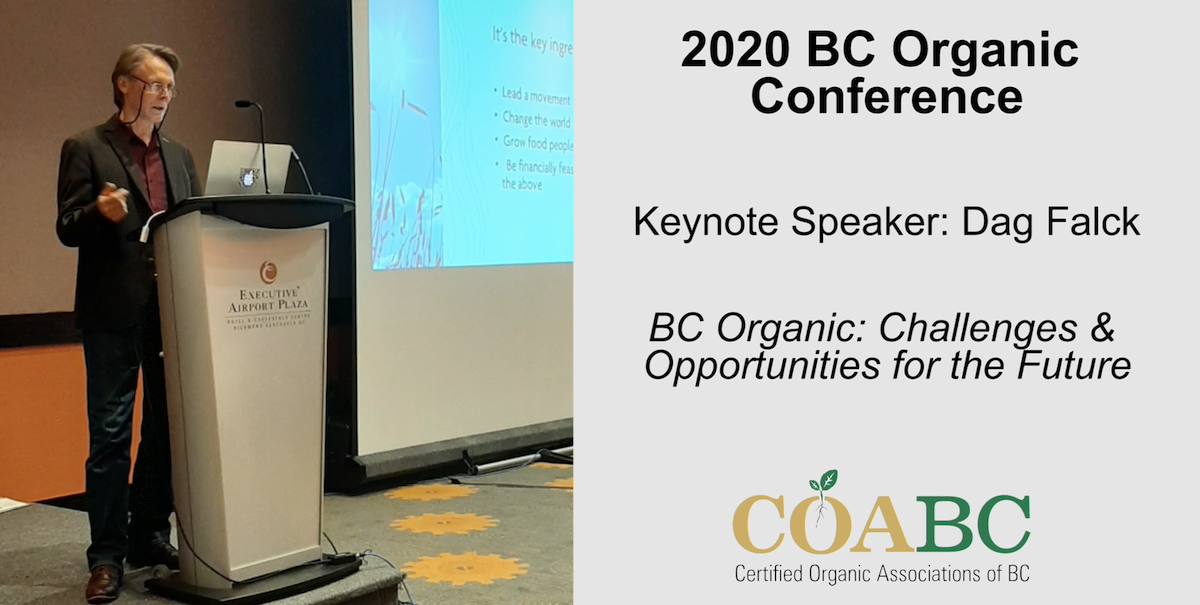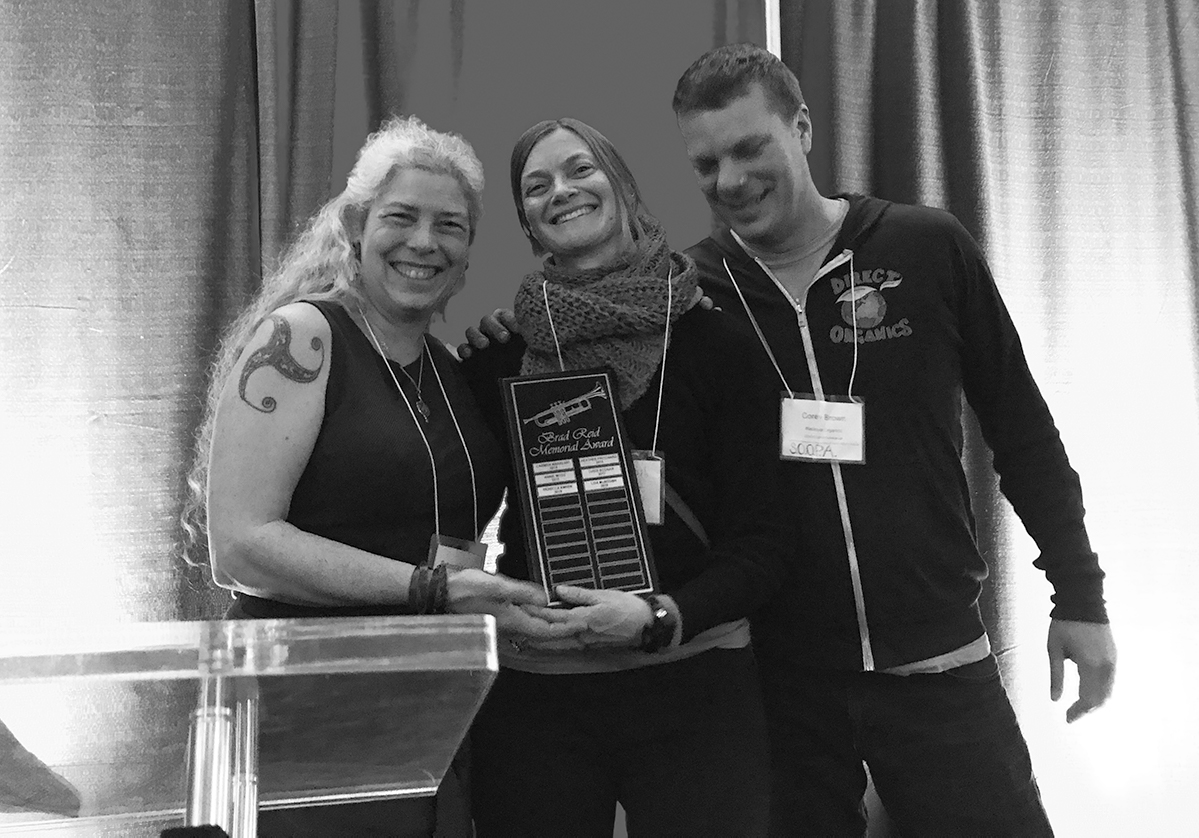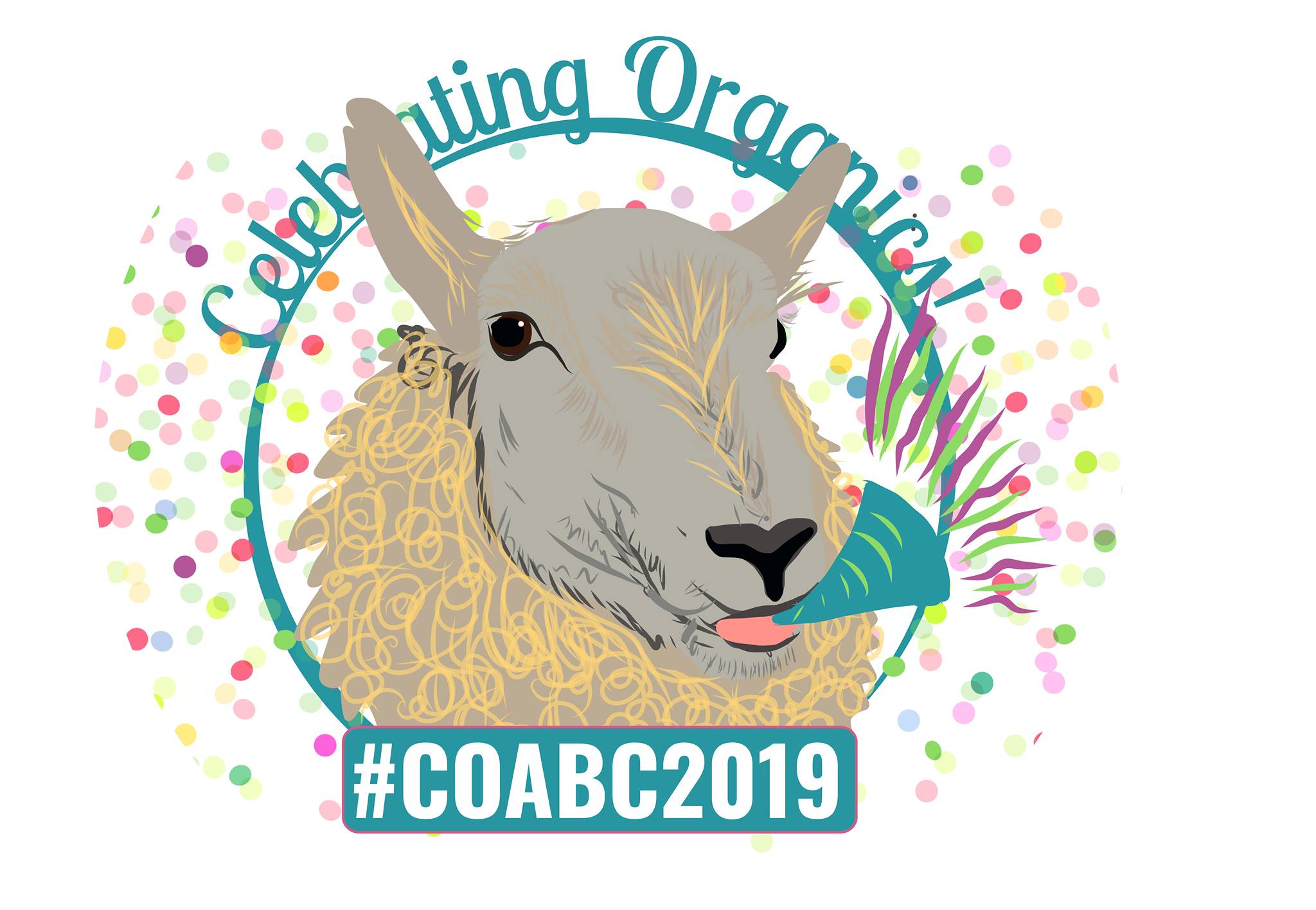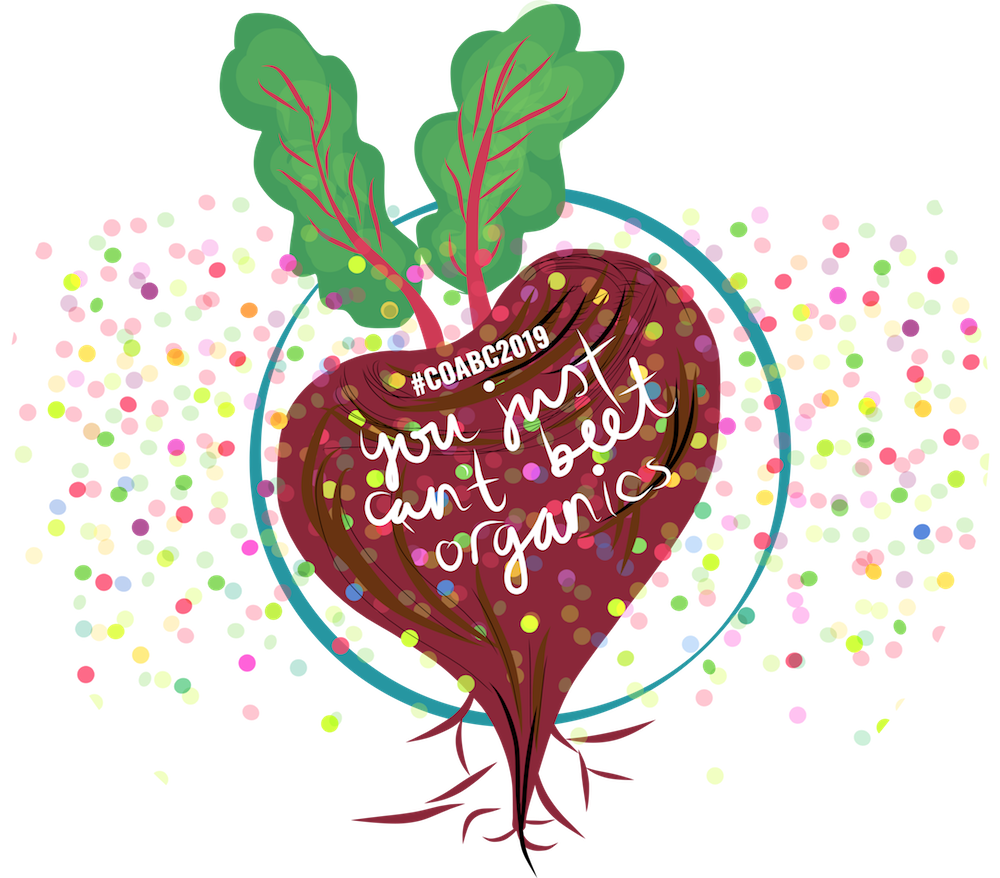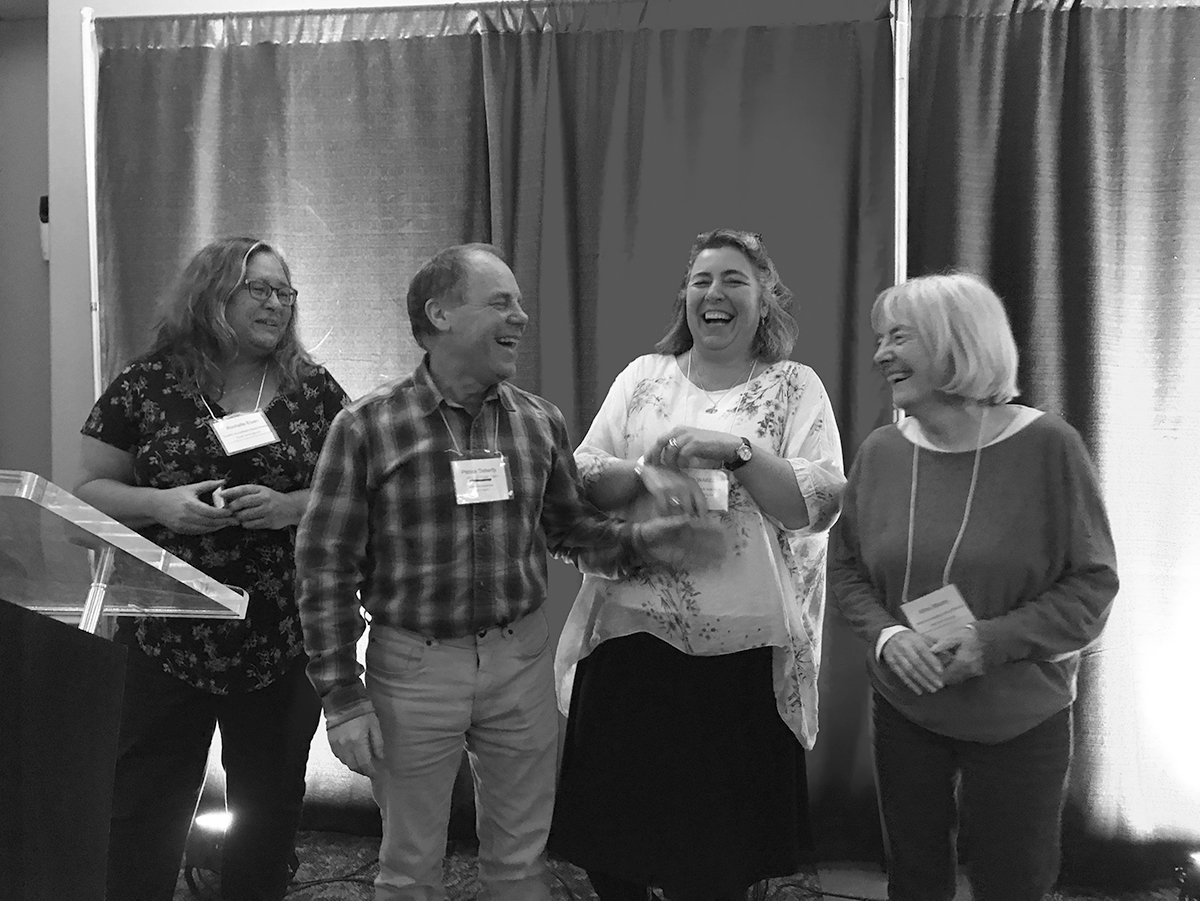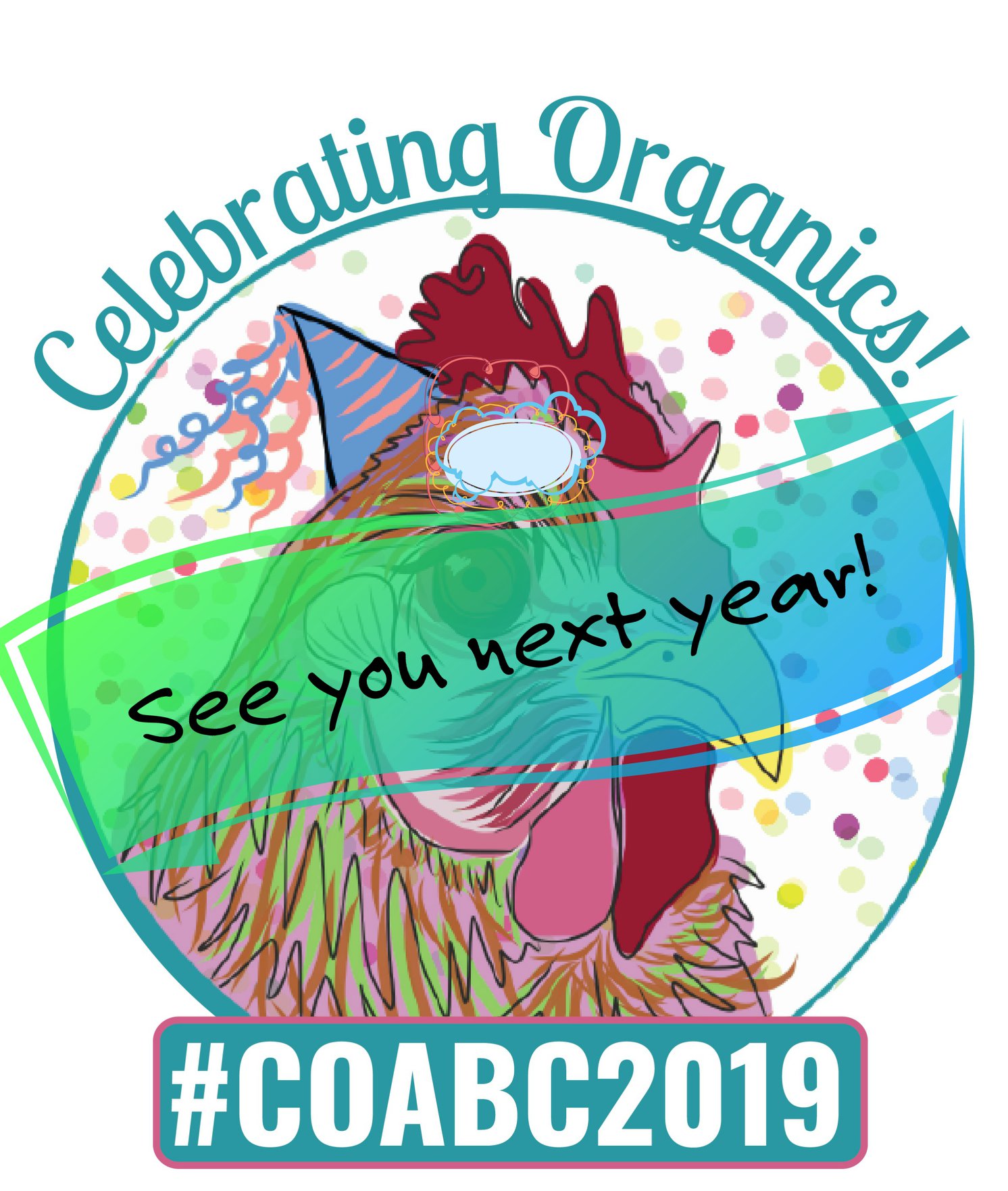Building Bridges
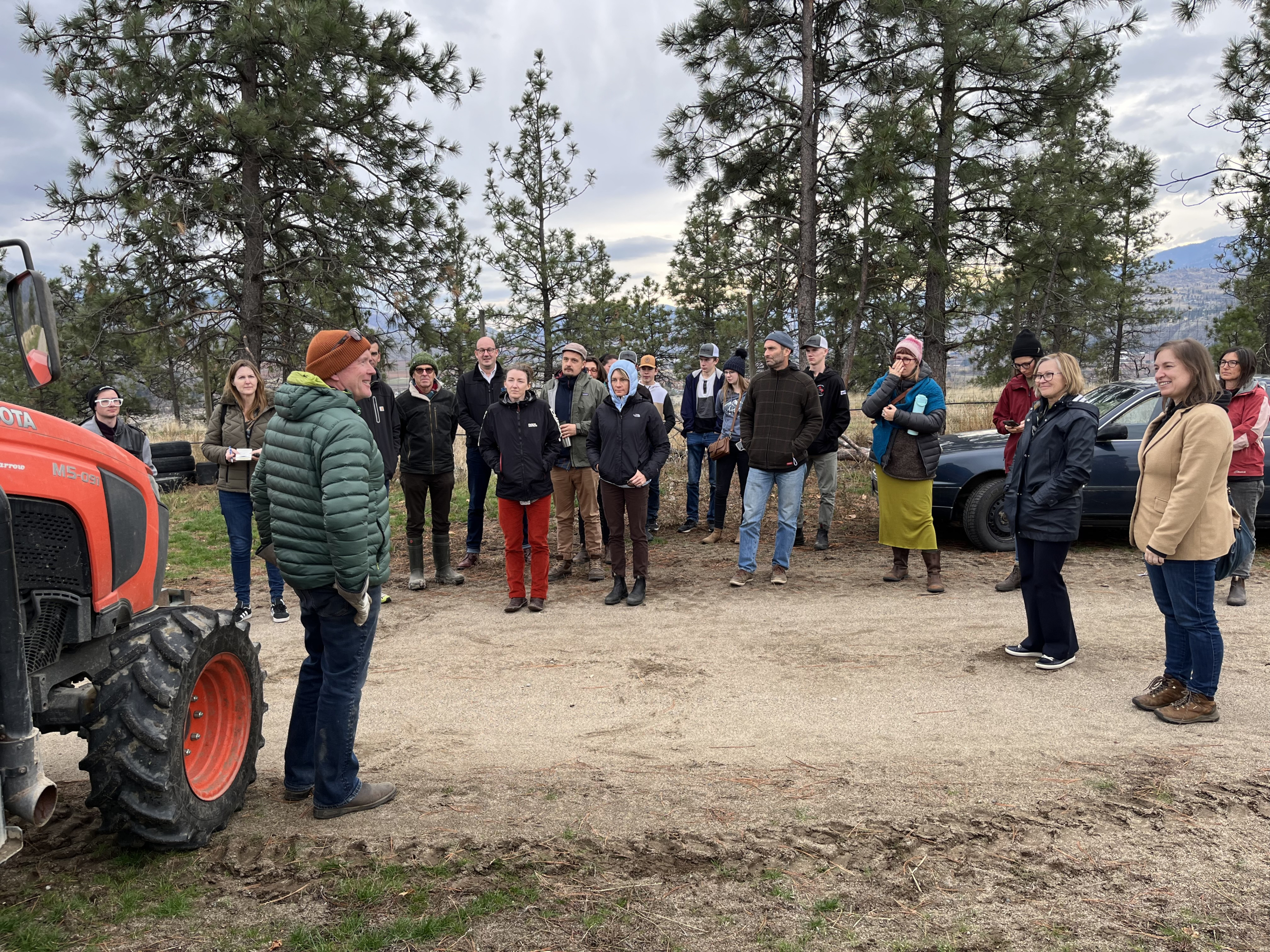
2023 BC Organic Conference Recap
By Stacey Santos
Mentorship. Perseverance. Kindness. Relationships. More than words, these ideas were penned and posted to a board at the 2023 BC Organic Conference—a nod of appreciation by and for the organic community, who came together for our first in-person conference in three years.
Held at the Penticton Trade & Convention Centre from November 7th to 9th, the 2023 BC Organic Conference was a milestone event. Not only did it mark Organic BC’s 30th anniversary, but it was also our biggest event ever, with nearly 300 farmers, ranchers, processors, distributors, retailers, government representatives, students, and other like-minded folks coming together to grow knowledge, connections, and a stronger future for all.
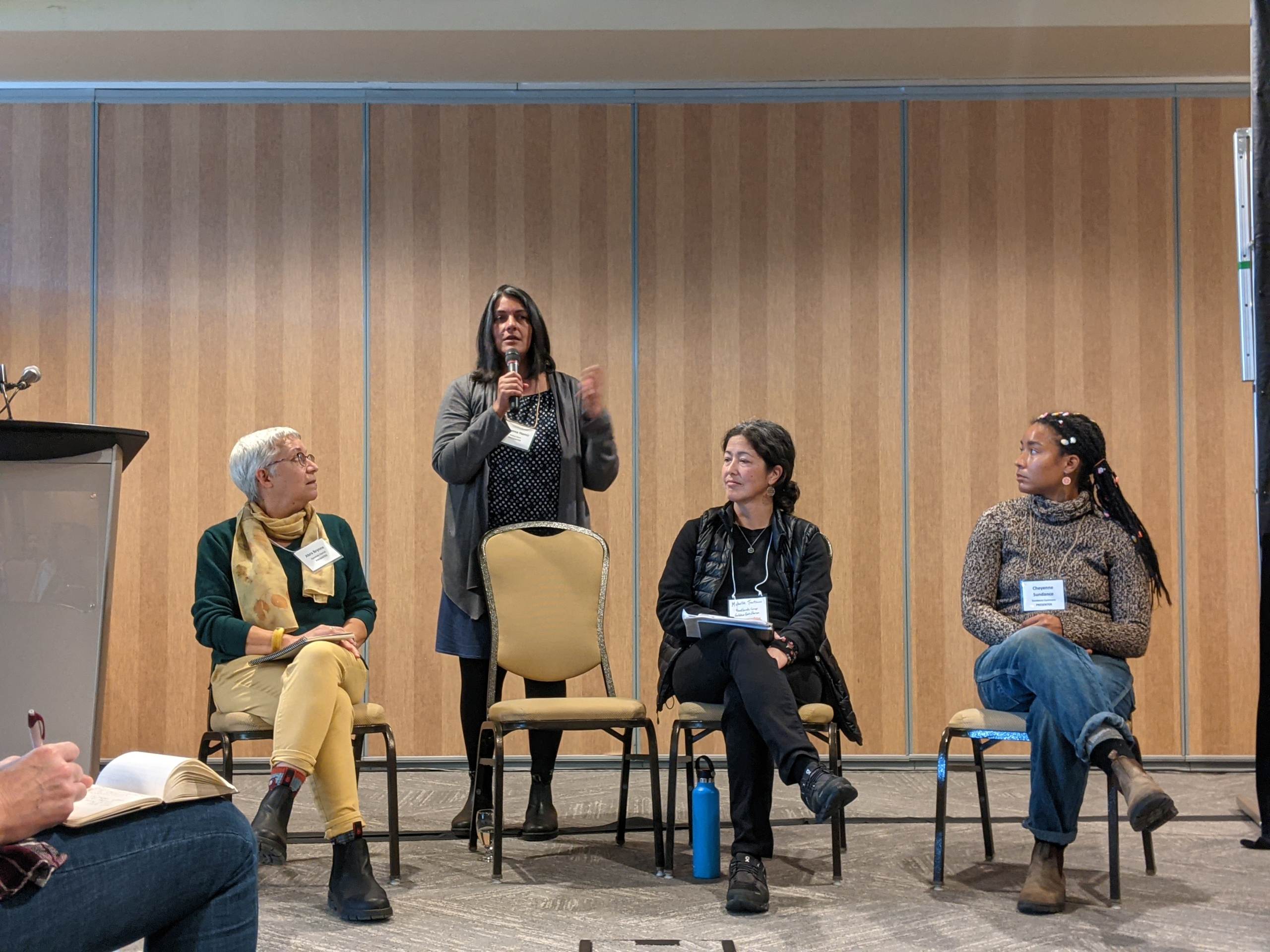
Deepening connections with soil—and people
For nearly 50 percent of attendees, this was their first time attending a BC Organic Conference—but definitely not their last! New or returning, attendees were drawn in by an extensive lineup, community connections, and the need to become reinspired after a tough few years.
The schedule was packed with 25 sessions (including four panels) on a wide range of topics, with hands-on learning, practical applications, and refreshing perspectives and ideas. We also held two off-site tours: one at Covert Estate Family Winery, which focused on regenerative practices of cover cropping, animal integration, and the use of no-till seeders (and wrapping up with a wine tasting, of course), and the other at Summerland Research & Development Centre, which dove into indoor lab work and outdoor trials on soil health and cover cropping. We were also thrilled to welcome two keynotes, Kelly Terbasket of indigEYEZ & kinSHIFT and Elaine Ingham of Soil Food Web.
Rather than fill an entire BC Organic Grower issue with highlights from this event (which I could easily do), here are few standouts:
- The incredible lineup and variety of sessions, covering soil health, business management, current challenges in viticulture, pasture ecology and grazing, supply chains, adapting to climate change, and more. You can view all of the sessions here: organicbc.org/conference/sessions
- The experience, know-how, and enthusiasm our speakers brought to their sessions. Attendees left inspired and energized for the year ahead!
- The Summerland Research & Development Centre tour. Showcasing the work of five research scientists, this tour was a conference highlight for many!
- Kelly Terbasket’s inspiring keynote that showed us how, in order to truly build bridges, we must reflect on our own histories, get out of our comfort zones, and come together for a collective purpose.
- Farming in Community for Everyone, an intimate, empowering, and interactive discussion about farming at the intersection of multiple (often marginalized) identities. As one attendee said, “This is not a session. This is everything.”
- Fuel for learning: The food this year was outstanding, with a great selection of organic meals and snacks donated by local producers.
- Square dancing: Described as a “hoot,” professional caller Brian Elmer led a 90-minute square dance, complete with custom, organic-themed audio.
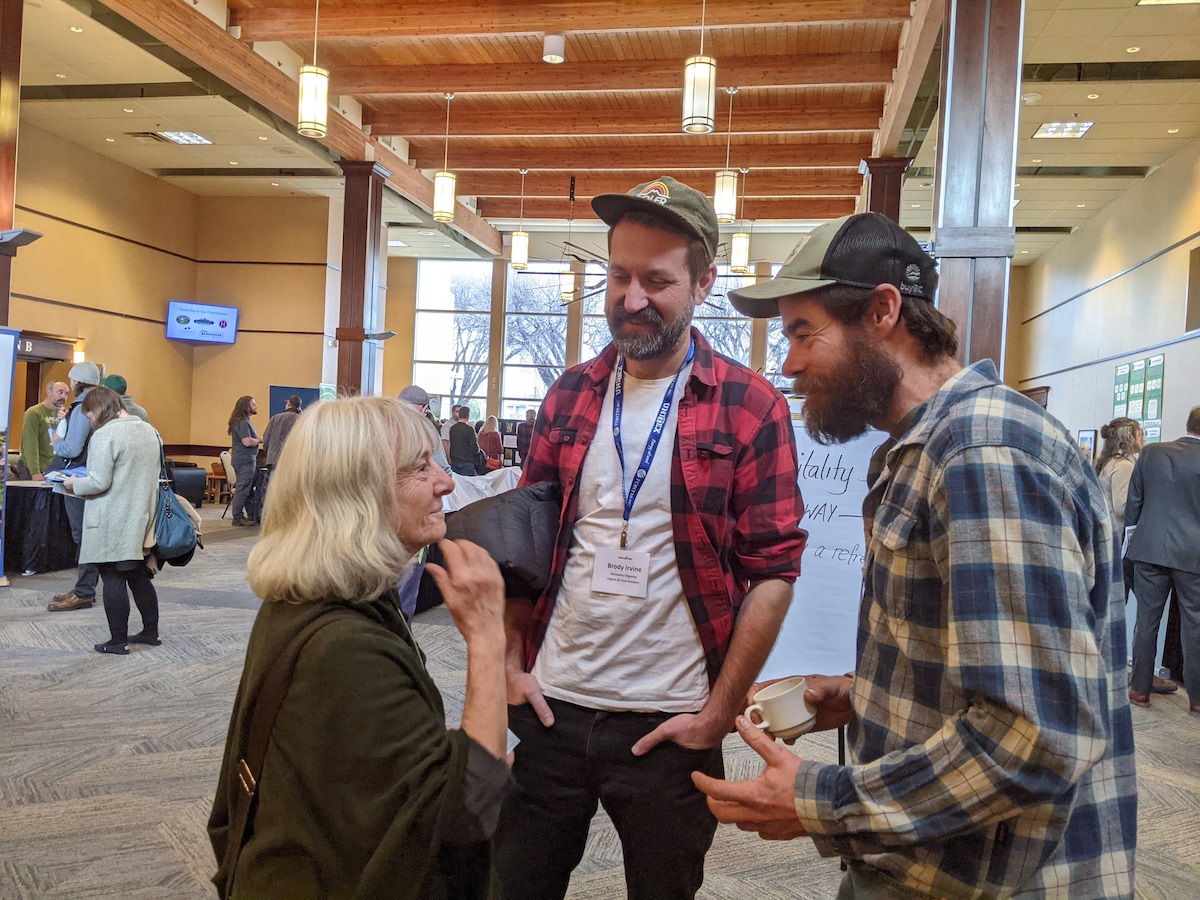
And one of my own highlights as part of the Organic BC team: the registration desk. More than an administrative necessity, the registration desk spawned new relationships, meaningful conversations, and creative solutions. From this hub of activity, I could bask in the attendees’ post-session glow and their excitement of meeting both old and new faces. It was a warm and fuzzy place with purpose (and coffee!).
Recognizing leaders
At every BC Organic Conference, we present awards that recognize the outstanding achievements of our members.
Congrats to this year’s Brad Reid award recipients: Robin Tunnicliffe, Heather Stretch, and Rachel Fisher of Saanich Organics. These farmers have grown a new generation of farmers through their teaching, mentorship, and culture of collaboration.
And more congrats to Ron Schneider and Andrea Turner of Heart Achers Farm on winning the Bedrock Award, which honours a person (or persons) for their contributions to the foundations of organics. With their strong beliefs, integrity, and forward thinking, Ron and Andrea were roots of strength in the founding days of the Certified Organic Associations of BC (COABC), Similkameen Okanagan Organic Producers Association (SOOPA), and the Pacific Agricultural Certification Society (PACS).
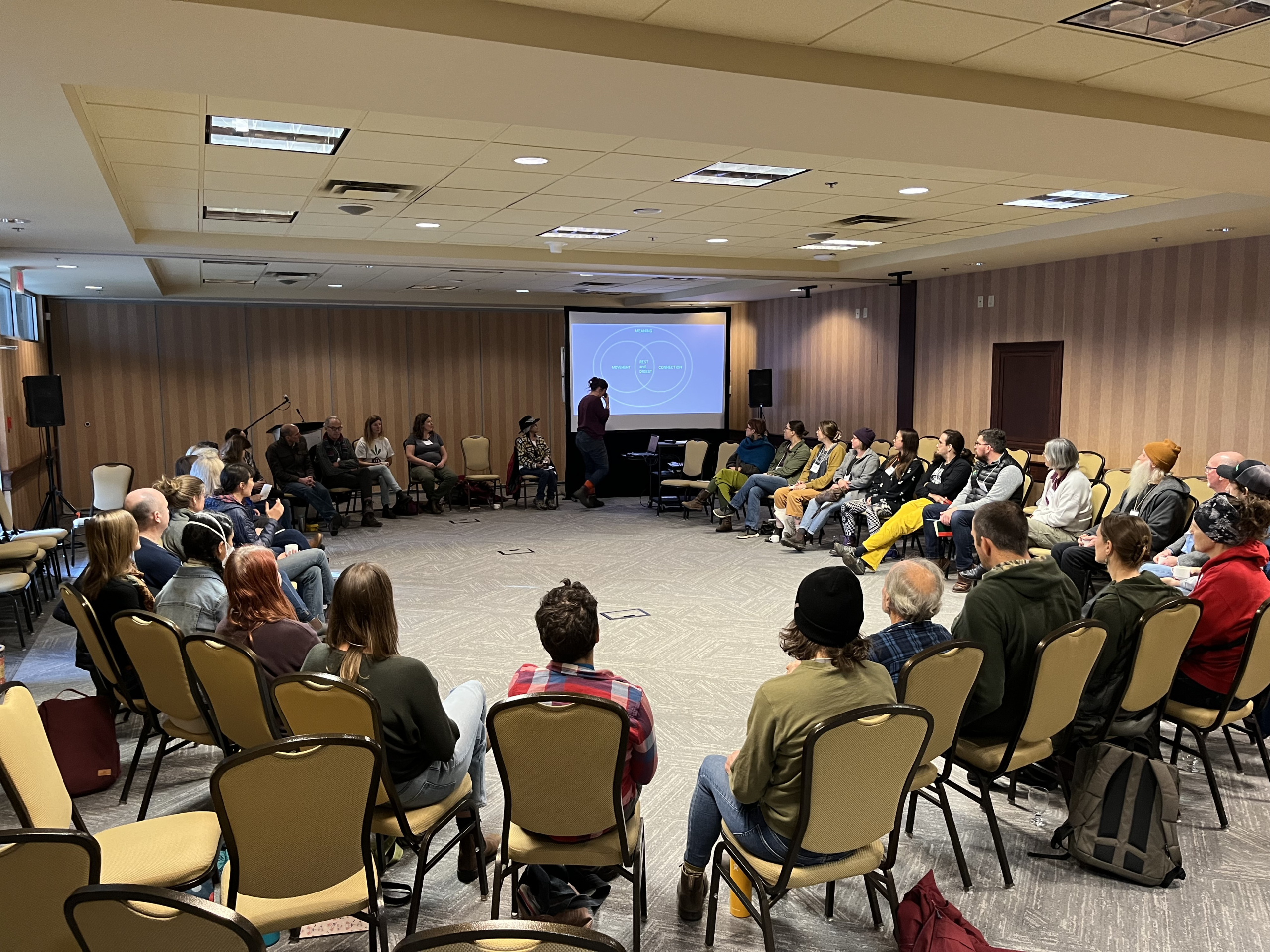
Building bridges for a stronger future
On the flight home, my heart, mind, and belly full, I glanced out the window as we ascended over Penticton. That’s when I saw it: the unmistakable glow of fire in the hills. I nudged my seatmate, who responded with a glance and a grunt of acknowledgment before resuming his scrolling.
Perhaps he wasn’t wrestling with the same conflicting emotions I was. While the conference left me energized and optimistic about the future, our world is changing and there’s still a lot of work to do. And that’s why it’s so important to build bridges in the agricultural sector and find strength in collective knowledge, connections, and support.
A final word of thanks
A huge thank you to our sponsors, food donors, and silent auction donors for their generous support of the 2023 BC Organic Conference! And of course, to everyone who came out and engaged, connected, shared, laughed and played together. Your record attendance contributed to the success of this event.
Held every two years, the next BC Organic Conference will take place in 2025. In the meantime, stay tuned for details on our many upcoming regional and online events in 2024!
Stacey Santos is the Communications Manager for Organic BC. She lives, writes, and gardens in the beautiful and traditional territories of the Lekwungen peoples, who are now known as the Esquimalt and Songhees Nations.
Featured image: Organic BC Conference Field Day at Covert Estate Family Winery. Credit: Organic BC.


